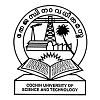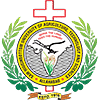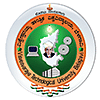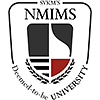MA HRM Syllabus and Subjects

MA HRM course curriculum includes subjects such as organizational behavior, training and development, group dynamics, etc., among others, which aid in providing advanced knowledge and understanding of current trends in the industry. MA HRM job scope is extensive, ranging from payroll manager, benefits analyst, human resource manager, etc.
Table of Contents
- Semester Wise MA HRM Syllabus
- MA HRM Subjects
- MA HRM Course Structure
- MA HRM Teaching Methodology and Techniques
- MA HRM Projects
- MA HRM Books
Semester Wise MA HRM Syllabus
MA HRM syllabus covers all the topics needed to understand the course, as well as the principles of human resource management and how it can be used in different contexts. The MA HRM course is divided into four semesters and covers a wide range of topics. The following is a list of the MA HRM topics offered each semester:
MA HRM First Year Syllabus
The table below lists the first-year subjects bifurcated into the first and second semesters of the MA HRM courses:
|
Semester I |
Semester II |
|
Organizational Behavior |
Human Rights |
|
Business Communication |
Training and Development |
|
Compensation Management |
Industrial Relations and Labor Law |
|
Stress Management |
Entrepreneurial Development |
|
Group Dynamics |
Quantitative Techniques for Managers |
|
Principles of HRM |
Labor Legislations |
MA HRM Second Year Syllabus
The table below lists the second-year subjects bifurcated into the third and fourth semesters of MA HRM courses:
|
Semester III |
Semester IV |
|
Strategic Human Resource Management |
Human Resource Account |
|
Research Methodology |
Human Aspects of Productivity |
|
Global Human Resource Management |
Counseling Skills for Managers |
|
Human Resource Information System |
Human Resource Management in Knowledge-Based Organizations |
|
Organizational Development |
Project Work |
|
Advance Human Resource Management System |
- |
MA HRM Subjects
Students for the MA HRM programme gain a thorough understanding of a variety of topics over the course of two years. For the MA HRM, core and elective topics are separated. The MA HRM course will cover the following topics:
MA HRM Core Subjects
The following are the core MA HRM subjects that all MA HRM students must take:
- Management Concepts and Principles
- People Management
- Introduction to human behavior
- Compensation Management
- Industrial Relations and Labor Law
- Business Communication
MA HRM Elective Subjects
The following are the elective MA HRM subjects that all MA HRM students can take:
- Accounting for Managers
- MIS for Human Resource Management
- Total Quality Management
- Innovation and Entrepreneurship
MA HRM Course Structure
The MA HRM course is structured in a way that helps students acquire knowledge, obtain practical exposure, and develop the necessary skill sets. The course is structured into core and elective topics over the course of two years. The MA HRM course is divided into the following sections:
- IV Semesters
- Core Courses
- Elective Courses
- Practicals
- Seminars
- Research Project
- Project Work
MA HRM Teaching Methodology and Techniques
To fully comprehend the course, one must have a firm understanding of MA HRM teaching strategies and techniques. Case studies, group projects, and other forms of action-based learning are incorporated into MA HRM programmes in addition to traditional lectures to increase the effectiveness of the curriculum. A range of teaching methodologies are used in the MA HRM programme, some of which are described below:
- Practical sessions
- Internship/Training
- Seminars
- Projects
- Regular Lectures
- Group Discussions
MA HRM Projects
The curriculum for the MA HRM course must include projects.The MA HRM curriculum places a lot of emphasis on team or individual projects that allow teachers the opportunity to assess students' performance and subject mastery. Following are some of the most prevalent MA HRM projects:
- How HRM helps companies remain competitive in a global market
- Study on how labor unions facilitate employee engagements
- Effectiveness of HRM KPIs
- The role of communication skills during employee acquisition and recruitment.
MA HRM Books
The books for the MA HRM give students a broad overview of the subject matter as well as a detailed analysis of their particular area of expertise. Some of the readings for the MA HRM course include the following:
|
Name of Book |
Author |
|
Organizational Behavior |
S. Sharma |
|
Managing a Global Workforce: Challenges and Opportunities in International Human Resource Management |
Charles M Vance |
|
Industrial Relations and Labor Law |
SC Srivastava |
|
Management Training and Development |
M. Vohra |








